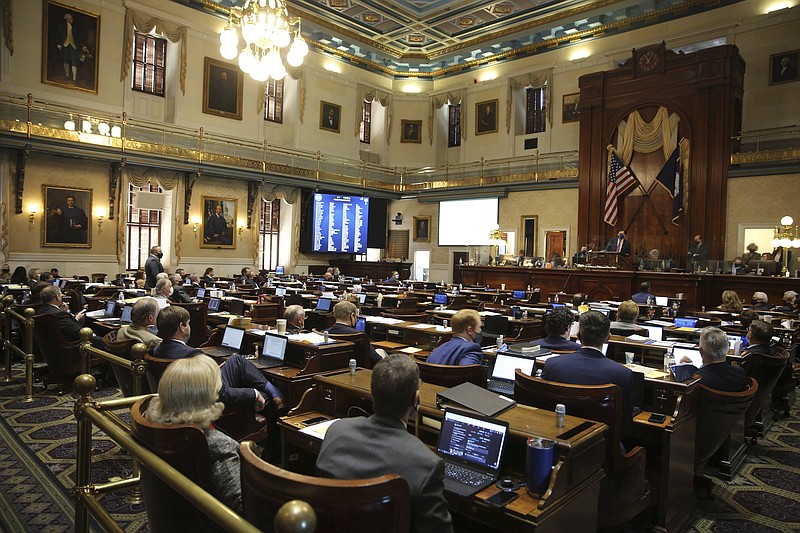Lawmakers in Republican-governed states are considering an array of tough anti-abortion restrictions they hope might reach the Supreme Court and win approval from its conservative majority, overturning the 1973 Roe v. Wade decision that established a nationwide right to abortion.
A sweeping ban already has been signed into law in South Carolina, only to be swiftly blocked by a lawsuit from abortion-rights groups. Arkansas' governor signed another ban last week.
A batch of other near-total bans also were blocked in the courts after their passage in 2019.
It's not clear if or when the Supreme Court might consider any of them, or take some other path. The court could weaken the Roe decision with approval of less drastic restrictions or even leave the core of the 1973 ruling in place.
What's clear is that the federal judiciary changed dramatically during Donald Trump's presidency. In addition to three appointments to the Supreme Court, giving it a 6-3 conservative majority, Trump made scores of appointments to federal district and appellate courts. That raises the possibility that previously rejected anti-abortion measures might now be upheld.
State Rep. John McCravy, a Republican who sponsored the South Carolina ban, said Roe v. Wade was on his mind in crafting the bill.
The South Carolina law, like several passed by other states in 2019, would ban most abortions after a fetal heartbeat is detected, typically about six weeks after conception.
The bill Gov. Asa Hutchinson signed Tuesday goes further, banning all abortions except when performed to save the life of the mother. It has no exceptions for rape or incest.
Hutchinson had favored including those exemptions but signed the bill anyway as an explicit challenge to the Roe decision.
"It is the intent of the legislation to set the stage for the Supreme Court overturning current case law," he said.
The American Civil Liberties Union of Arkansas plans to challenge the ban in court.
Arkansas and South Carolina are among more than 15 states where lawmakers have proposed near-total abortion bans this year, according to the Guttmacher Institute, which advocates for abortion access.
Guttmacher's director for state issues, Elizabeth Nash, said the total number of anti-abortion measures this year is nearly 400 -- on par with other recent years. What's different, she said, is the fast pace at which some bills are moving.
"State legislatures are putting abortion restrictions and bans on the front burner, at the top of their agenda," Nash said.
In addition to sweeping bans, states are considering an array of other restrictions. They include limiting access to medication abortions, banning abortion after 20 weeks of pregnancy, banning it in cases of fetal anomalies such as Down syndrome, and outlawing a common second-trimester abortion procedure known as dilation and evacuation.
Some anti-abortion activists suggest the Supreme Court may take an incremental approach, upholding measures that fall short of a near-total ban but still would weaken Roe. That ruling held that abortions should be legal up to the point of a fetus's viability -- roughly 24 weeks.
